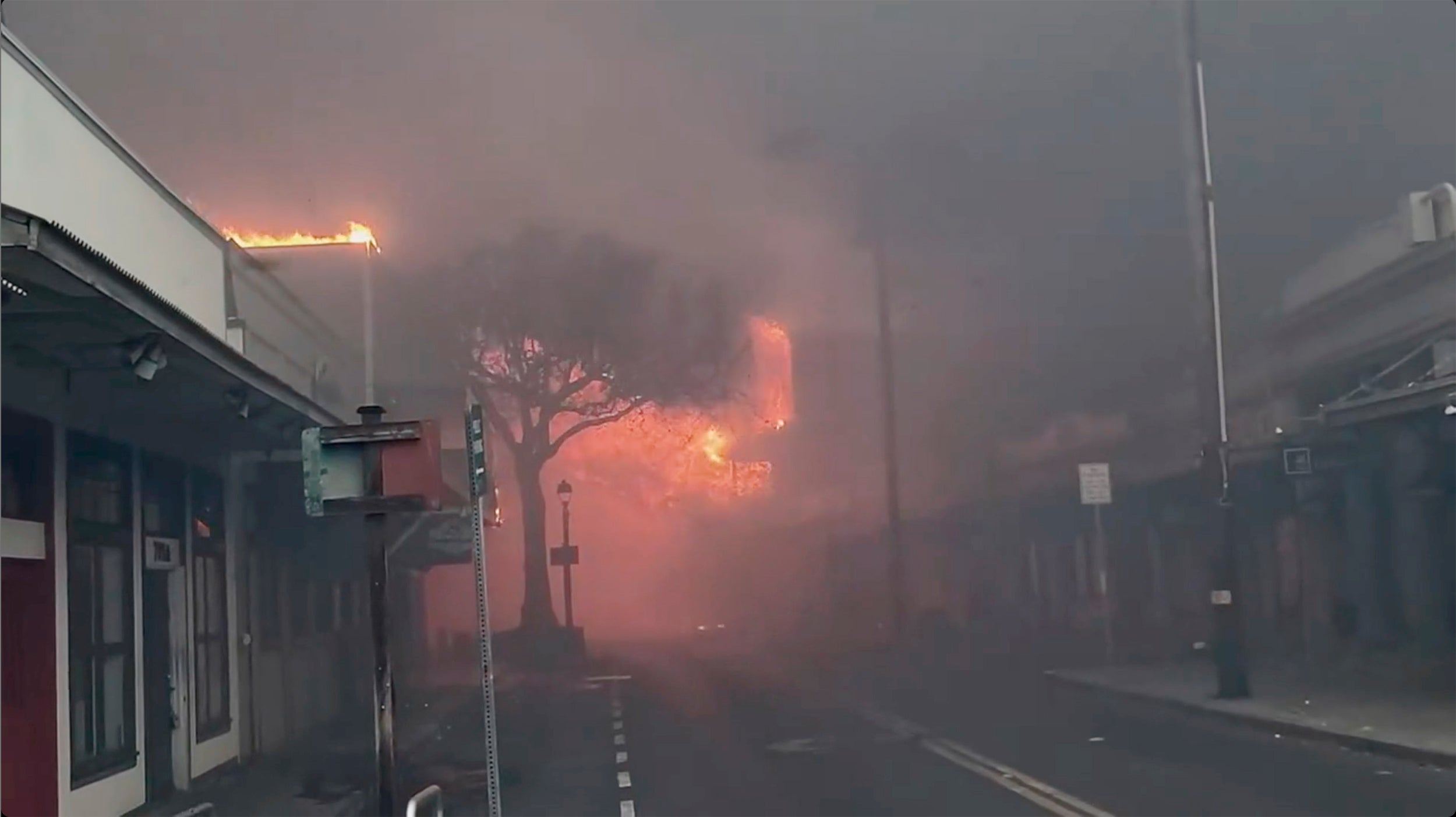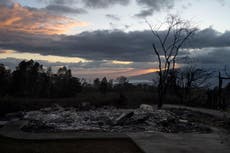Maui officials defend decision to not sound outdoor sirens as wildfires approached
Maui County Emergency Management Agency administrator said he did not regret the decsion
Your support helps us to tell the story
From reproductive rights to climate change to Big Tech, The Independent is on the ground when the story is developing. Whether it's investigating the financials of Elon Musk's pro-Trump PAC or producing our latest documentary, 'The A Word', which shines a light on the American women fighting for reproductive rights, we know how important it is to parse out the facts from the messaging.
At such a critical moment in US history, we need reporters on the ground. Your donation allows us to keep sending journalists to speak to both sides of the story.
The Independent is trusted by Americans across the entire political spectrum. And unlike many other quality news outlets, we choose not to lock Americans out of our reporting and analysis with paywalls. We believe quality journalism should be available to everyone, paid for by those who can afford it.
Your support makes all the difference.Officials in Maui, Hawaii, believe sounding the local alarm system before the wildfires engulfed several neighbourhoods would not have been useful, they said in a press conference on Wednesday.
As the death toll in Maui rises each day, questions have been raised over the officials who chose not to activate their emergency alert system and have sirens go off near coastal towns like Lahaina before the fast-moving fires reached populated areas.
“Had we sounded the siren that night, we were afraid that people would have gone mauka (to the mountainside),” Herman Andaya, the Maui County Emergency Management Agency administrator told reporters.
Mr Andaya said their outdoor sirens are typically used for tsunamis in which residents are trained to seek higher ground.
“And if that was the case, they would have gone into the fire,” he added.
Mr Andaya said that the outdoor sirens only exist on the coastline so even for the people who live mountainside, they would have been useless to them.
He added that most people probably would not have heard the siren due to the winds and incoming fire.
Several survivors of the fires have voiced their frustration about not receiving a warning about the wildfires which led to frantic evacuations when it was too late to leave Lahaina.
But officials said they sent out emergency alerts via phone, radio and TV about the wildfires, which they believed to be the most efficient way to get the message out.
Some reports indicate by the time the emergency alert went out, parts of Maui did not have power or cell phone signal due to the high winds and incoming fires.

On Hawaii’s Emergency Management Agency website, it indicates the outdoor sirens can be used for hurricanes, dam breaches, flooding, wildfires, volcanic eruptions, terrorist threats, hazardous material incidents and more.
Despite this, both Mr Andaya and governor Josh Green said the siren is advertised as being used almost exclusively for tsunamis – especially for beachside neighbourhoods and towns.
Mr Green said when he first moved to Hawaii he was always told, “If you hear a siren, it’s a tsunami, you go to high ground.”
That single-minded approach to the sirens has proven dangerous after the Maui wildfires. Mr Green said in the future they are going to find new ways to keep the public informed about incoming disasters.
“We’re performing a comprehensive review to find out what the safest and most effective, science-based way is to protect people,” Mr Green told reporters.




Join our commenting forum
Join thought-provoking conversations, follow other Independent readers and see their replies
Comments